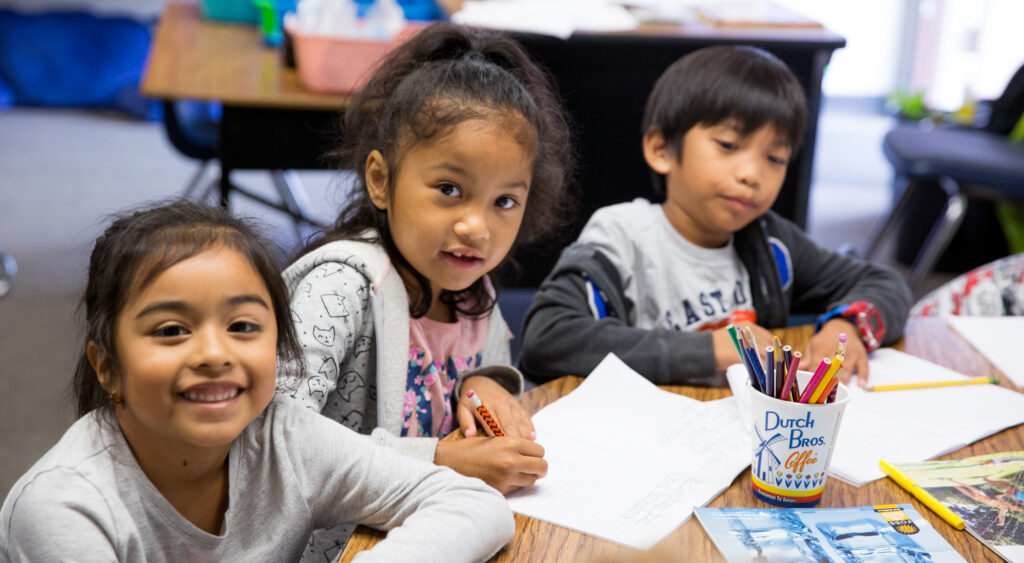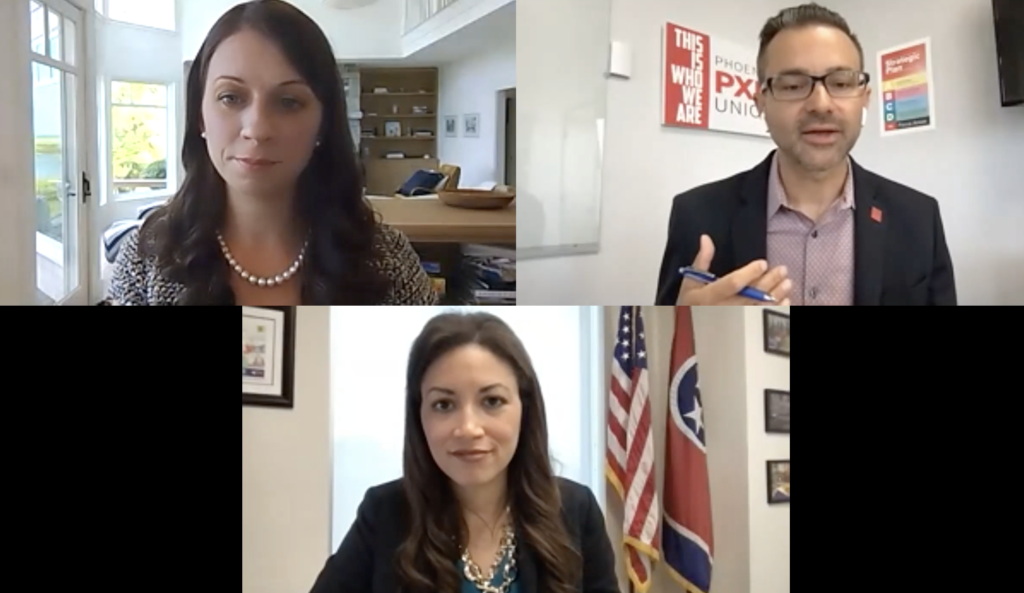Guest Post by 5th Grade Teacher Mike Lewis
I spent my entire K-12 career dreaming of the day that I would be done with the classroom. My worksheets were completed, my boxes were checked, my grades were average. In short, I didn’t see the relevancy in going to school, aside from socializing. When I finally discovered how much fun it was to learn something new, build something from scratch, take pride in accomplishments; I felt cheated by the educational system. I may have learned a lot without realizing it in those twelve years, but who I was as a person was not one of them.
This is my seventh year teaching 5th grade and I look forward to every Monday morning. Not only have I discovered myself through teaching, being an educator defines who I am. Looking back down the road that lead me to an event with the nation’s top educational policy makers, practitioners, and entrepreneurs was more rewarding than I can articulate.
During a day filled with resonating messages, Ted Mitchell’s conversation with Thomas Friedman will impact every student I ever work with. “It is no longer true that if you work hard and play by the rules, you’ll be guaranteed a spot in the middle class.” In our connected world there is no shortage of, or access to, vast pools of talent. As sobering as it may be, average is over.
The heart of Mr. Friedman’s talk revolved around five absolutely enlightening habits-of-mind for success in the 21st century. Over the past week, I’ve thought a lot about how this framework has revolutionized both my classroom and my career.
Persistence + Creativity > Intelligence
I can’t begin to talk about how powerful this notion is without thanking the Learnzillion team and one person in particular, Eric Westendorf, for unlocking a side of myself that I didn’t think existed. While I’m very proud of my students’ work and how I’ve been able to facilitate it, I’m never happy with my own products. I worked harder and longer on creating video math lessons for Learnzillion than on anything else I’ve ever done. When we met as a team a few weeks ago to collaborate on this year’s plan, I re-watched my lessons for the first time since I submitted them. I braced myself for the inevitable cringe but it never came. The satisfaction I felt was overwhelming.
Now, if I get a really good roll, I could land a baseball in the ocean from my driveway. Last summer was one of the nicest on record in New England and I saw the majority of it through the window behind my computer. So, what did the Learnzillion team did to engender that level of effort and how can we transpose over the classroom model?
Think Like a Start-up
When Eric and Alix talk about Learnzillion, you can’t miss their genuine belief that it will change the world. They don’t have to say how much they appreciate everybody involved in the effort (even if they still do) because it’s clear from their every action. That, in turn, flows throughout everyone who has come in contact with the project. And when everybody internalizes a shared vision, all of the usual challenges to collaboration just naturally dissipate. From the Learnzillion staff, to the coaches, to every member of the DreamTeam, we truly believe that each and every one of us plays an integral part in the effort.
Always be in beta because even the greatest of ideas can be improved. This summer’s plan for lesson creation looks even better than last year’s. Responding to user data, these slight shifts make the work even more rewarding. As challenging as the project is, when you understand that your energy will lead to an even more effective product, it’s that much more rewarding. It takes tremendous time and effort to curate and cultivate a good idea. If we’re going to continue to be an innovation society, the 9-5 model may be on the brink of extinction. Show me the person who loves their job and I’ll show you somebody who’s never worked a day in their life. Change isn’t a good thing or a bad thing; it’s change. Hey, a cliche’s a cliche for a reason.
Think Like an Artisan
I do everything I can to transfer the mentality I’ve seen from working with Learnzillion into the classroom. To get the same effort from my students I try to ensure they see the relevancy in their work. Through a collaborative website, students always have an audience far more meaningful that their teacher, they write for each other. Just as Learnzillion leverages a supportive community, my students have access to language stems that ensure positive and productive feedback. When students are used to feeling successful, they’re more likely to invest the time it takes to create work that reflects their full effort. Like artisans, they create products they are proud to carve their initials into.
Think Like an Immigrant
The days of filling out worksheets to check off the boxes are over. Students can’t afford to be satisfied with average work. When students’ passions drive their instruction, their products surpass my every expectation. Like those who have come to this country with nothing, expect that nobody is going to hand you anything. Pave your own way.
Think Like a Waitress
This might be my favorite. Mr. Friedman told the story of his favorite pancake house. When the waitress delivered the meal, she brought extra fruit. That waitress didn’t control much but she took full advantage of the little she could control. We need to educate a generation of kids to understand that the scales aren’t always tipped in their favor. We have to help them discover how they can take full advantage of every opportunity, every strength, and every interest. No matter how seemingly insignificant, they must leverage everything within their power.
If we intend for this democracy to be successful, it is time that the classroom plays the central role in helping each and every student discover what drives him or her. I’ll end with a final quote from Thomas Friedman. “Leadership is inspiration.” It’s way too easy to get caught up in the daily minutia of making sure all of the boxes get checked. Creating an optimal climate for students to internalize these habits-of-mind has to come from the collective heart. While it may not be easy, it certainly is rewarding. And, it could be exactly what we need to change our collective course. I, like everybody else I met at Summit 2013, envision a future where kids develop the habits of finding and following their passions inside the classroom, not in spite of it.


